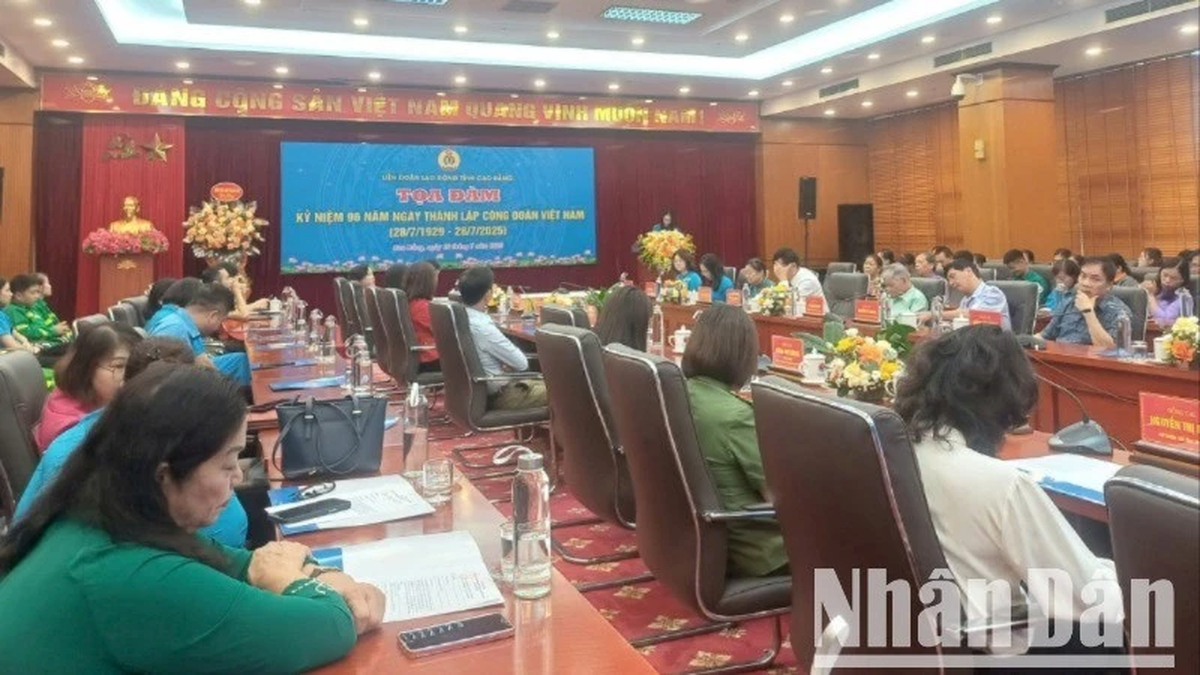Who was fined 2 million dong?
To connect members, many companies often organize tours and travel for all employees. Many companies and businesses have included this content in the welfare regime to encourage employees. However, many employees are hesitant and do not want to participate.
Ms. PHL, who works at an electronic components manufacturing company in Hung Yen , said that the company also has very clear regulations on annual employee welfare.
This year, her unit has announced the tour and announced the registration schedule with a budget of 2 million VND/person. In case of pregnant or maternity workers who cannot go, they will receive the above amount.
"Those who have registered to go but their children get sick and are hospitalized on the scheduled date will also receive 2 million VND if they have a medical certificate," said Ms. L.
Many workers who do not report to go on the trip close to the date will be fined 500,000 VND. In addition, workers who do not attend or do not report in advance will be fined 2 million VND.

Travel with the company to strengthen the bond between members (Illustration: Linh).
According to Ms. L., although this is the company's welfare policy, not all employees are enthusiastic about it. Therefore, each unit needs to have specific and clear regulations.
According to the provisions of the 2019 Labor Code, Decree 145/2020/ND-CP taking effect has added a number of cases where employees are allowed to take time off work but still receive full salary: Annual leave, annual leave increased by seniority; Holidays, holidays, Tet; Personal leave with pay...
Thus, the 2019 Labor Code does not have specific regulations on "vacation and travel for employees". Vacation and travel regimes for employees are often regulated or expressed through the internal rules, regulations, and activities of the grassroots trade union organization.
Article 67, Section 2, Chapter V on Workplace Dialogue, Collective Bargaining, Collective Labor Agreements in the 2019 Labor Code has specific provisions on the contents of collective bargaining.
Accordingly, in addition to salary, bonus, working time, rest time, etc., other contents that are of interest to employees or businesses such as vacation and travel allowances; sick visits, etc. have also been expanded.
Thus, there is no regulation requiring businesses to pay for employees to go on vacation or travel. However, if the issue has been brought up for collective bargaining, included in the labor agreement, or included in the internal spending regulations, the business is required to implement it.
Cut bonuses when selling company travel tickets
Working at a fruit export company in Tay Ninh , Mr. Nguyen Van An said that most of the branch's employees are very excited about traveling and vacationing every year.
Those who did not join the trip were mainly due to poor health or unexpected work. However, he also encountered many cases of colleagues selling their travel tickets.
"My company has a precedent where some employees registered but did not go. However, they sold tour tickets to other employees so that their relatives could buy them. After being discovered, this employee was disciplined and had all bonuses for that year revoked," Mr. An shared.
The company he works for has annual travel, which is included in the company's benefits with the decision and attached appendix.
During the travel days, employees are given full pay. The company's expenses are deducted from profits at the end of the fiscal year.
According to Mr. An, the company will announce detailed information about the tour program 1-2 months in advance. After completing the registration list, it will be submitted to the company's leadership for approval.

Many companies have a welfare regime that includes annual vacations (Illustration: Duy Tuyen).
"For cases of not going, the company requires a reason. For personal reasons that are not legitimate and not approved by the director, it is considered that the employee has given up his/her rights," said Mr. An.
In addition, cases with reasons such as health, taking care of relatives, work requirements that can work from home or work at the company will receive an additional 50% of the norm, up to a maximum of 2 million VND.
Those who have legitimate reasons for not going and staying at home will receive full pay, except for weekly days off.
"In cases where registration has been made but cancellations are made, depending on the time of cancellation, a fine will be imposed and the travel ticket price will be charged," Mr. An added.
(Character name changed)
Source link

























![[Photo] Signing of cooperation between ministries, branches and localities of Vietnam and Senegal](https://vphoto.vietnam.vn/thumb/1200x675/vietnam/resource/IMAGE/2025/7/24/6147c654b0ae4f2793188e982e272651)











































































Comment (0)